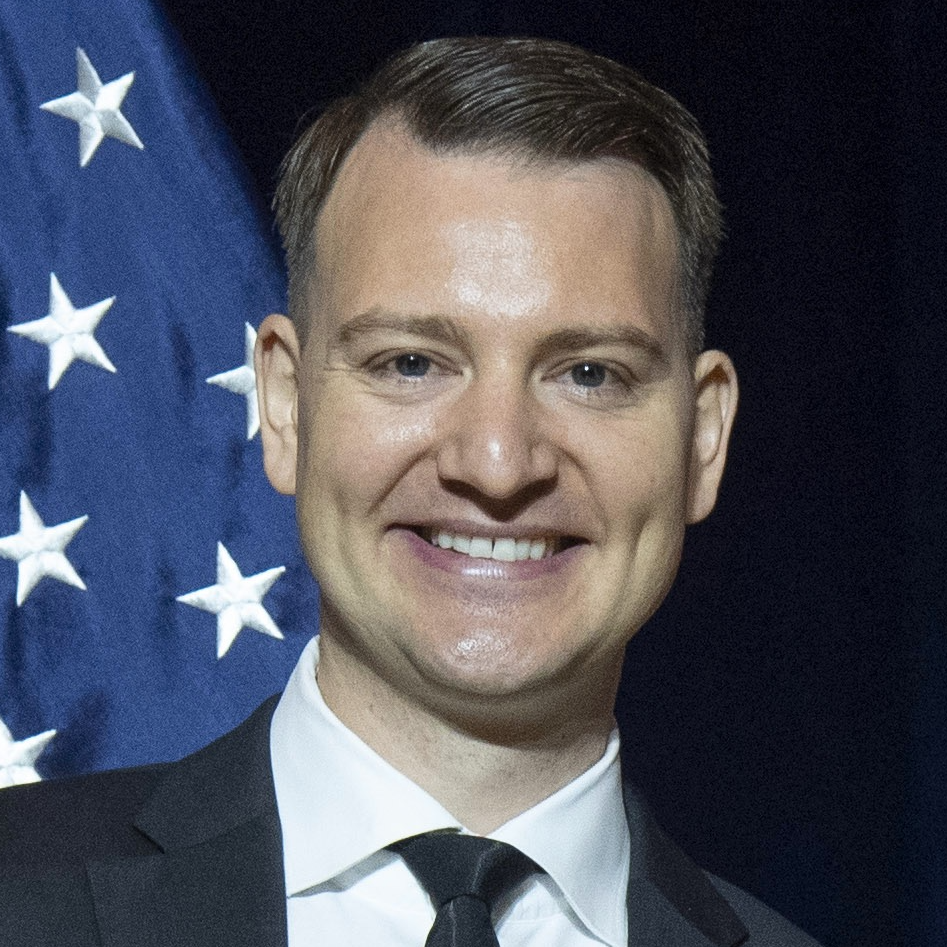Volker Sorger
George Washington University and Optelligence Company, USAFor outstanding innovations in the research and development of opto-electronic and nanophotonic devices, and for community leadership.

Volker Sorger discovered optics in a unique way. As a child, he enjoyed stargazing on long summer nights and gazing at the planets and moon through telescopes in the family’s gardens, in awe of the Milky Way. His early interest in the stars led him to a minor in astronomy in his undergraduate studies. In 2009, he even applied to become an astronaut with the European Space Agency and was one of the 22 finalists out of almost 10,000 applicants. After nearly a decade into his profession in related areas, including materials science, electronics, and nanotechnology, Volker transitioned to optics. He shares, “during my PhD, I essentially integrated everything I learned from electronics and device physics and added the pioneering explorations in nanophotonics. Now we build electronic-photonic machine learning systems, marrying the two areas together with a third field, computer engineering.”
Today, devices and information processing systems are still the core of Volker’s research at George Washington University, USA. His research on optoelectronics, photonic circuits, and electronic-photonic application-specific-integrated-circuits (ASIC) have applications in artificial intelligence (AI), quantum information processing, and even cryptography. More recently, he and the group have started to explore the quantum world, looking at the fundamental question: “Can we count the amount of information, and how can we measure it?” This particular question relates to computing and signal processing at fundamental possible limits. Branching out from the academic world, in March of 2020 Volker started a company, Optelligence, which innovates on solutions on photonic-based computing, intelligent systems, and cryptographic accelerators for next-generation machine intelligence and making data and software processes more secure. “Our photonic hashing chip will help make the internet safer,” Volker adds.
It is clear that Volker wears multiple ‘hats’ in his career, spanning both academia and industry, personal and professional; he strives to explore all that life offers. This stems from a book he read by German Philosopher, Richard David Precht, Wer bin ich - und wenn ja wie viele? (Who am I - and if so, how many?). Volker comments, “We take on multiple roles in life, and this enables a great degree of freedom to innovate creatively…Of course, it’s key to have a core strength, but it’s exciting to explore cross-pollination innovations drawing inspiration from intersecting expertise.” This approach has undoubtedly led Volker to a stimulating and original career.
In addition to brainstorming on thought experiments exploring fundamental boundaries, Volker enjoys finding practical solutions with the potential to propel the entire photonics community and industry. “Think big and be bold,” he comments. To accomplish this, a path he’s taking with Optelligence is providing photonic ‘black-box’ processing modules. “These are plug-&-play packaged photonic chips that an electronic board designer can simply use without needing any knowledge about optics,” Volker explains. “This will propel the entire photonics community forward by leveraging the electronic chip industry infrastructure seamlessly. Packaging solutions are the key for real impact.”
Volker’s advice for young scientists is to strive for intrinsic motivation. This means that you do the work because you feel internally motivated rather than driven by outside influence. He says that group leaders, mentors, and advisors often suggest research topics or areas to explore. While their thoughts may be of interest, it is crucial to understand why you’re doing the research and what makes you intrigued about that topic. A question that he asks himself regularly is: What are we trying to achieve? He says, “We need to be honest with ourselves. If you’re excited about something, even if it’s a little outside the box, explore it: To boldly go where no one has gone before,” he shares with a grin, connecting to his astronaut roots and revealing his love for the Star Trek universe.
Looking to the future, Volker is enthusiastic to see and be an active part of driving the field. With so many advances in technology and the rapidly growing need for efficiency, Volker sees photonic communication and photonic information processing and computing at the tip 21st century technology innovation. Furthermore, optical technologies are expanding into many fields, which means there are new and exciting applications yet to be harnessed. Particularly in his area of expertise, integrated photonics-electronics has a rich future yet to be fully commercialized. He shares, “Light is very good at handling and processing information. I think we’re going to see a lot more use of information that’s in the optical domain because it’s easier to transport and process…such as realizing the Convolution Theorem at zero-energy cost via an optical lens, for example.” He concludes, “The future looks bright, literally!”
Photo Credit: Volker Sorger
Profile written by Samantha Hornback
